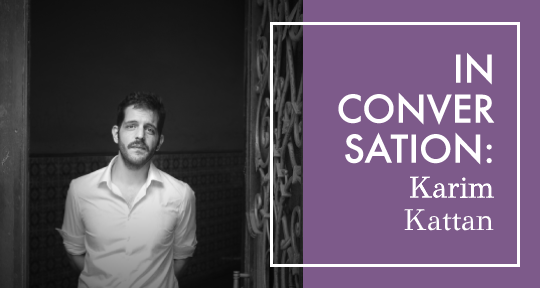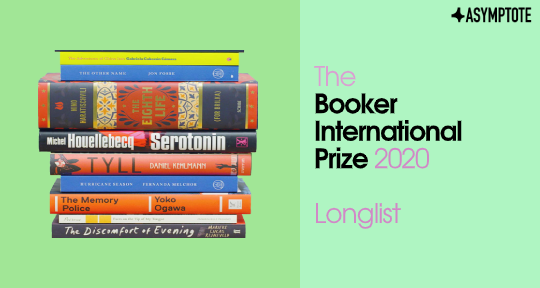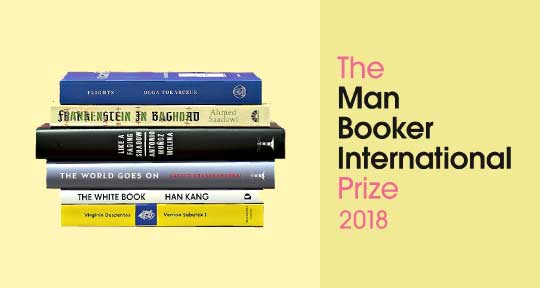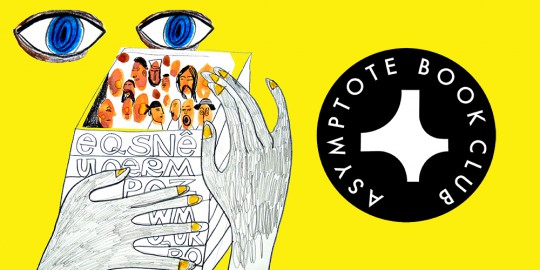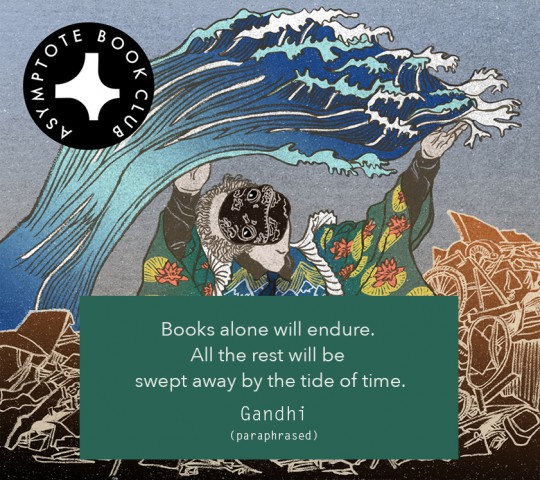Karim Kattan is a writer and researcher who lives between Bethlehem and Paris. In 2014, he cofounded el-Atlal, an international residency in Jericho for artists and writers. His first collection of short stories, Préliminaires pour un verger futur, was published in 2017 by Elyzad. His first novel, Le Palais des deux collines, is forthcoming in January 2021.
Karim’s writing is like a rupture. He has the ability to discuss uncanny and often uneasy topics with a literary beauty. It would be limiting to categorize him solely as a “fiction writer,” as his writing spans across genres from nonfiction to academic, with works published in The Funambulist, +972 Magazine, and The Maine Review. I first discovered his writing on The Paris Review, in an essay about an abandoned and haunting yellow building on the road from Jericho to the Dead Sea. In it, he blurs the lines between fiction and reality, all while intertwining elements of storytelling and oral history. Karim weaves worlds together, creating a tapestry of ideologies that often seem on the verge of colliding, yet somehow converge. For Karim, the personal can be political, and he often skillfully uses oratory and intergenerational stories to address the fraught subject of erasure. A particularly alluring quality to his writing is his ability to play with transience, often expanding brief moments into larger and absorbing experiences.
The craft of writing is of tantamount importance for Karim. He often talked to me about the importance of humility both in writing and in general practice. He holds a devotional importance to editing and crafting sentences that both have a purpose while retaining an aesthetic beauty to them. He approaches the written text like a precarious manuscript that needs to be made relevant. In this interview, we discuss the craft of writing, desert landscapes, and the language of belonging.
—MK Harb, Editor-at-Large for Lebanon
MK Harb (MKH): Karim, tell me more about your writing process. How do you navigate writing for multiple audiences? You once said your PhD training has positively influenced your writing as a novelist. How is that? I view literary writing as expansive and breathable, while academic writing as compact . . .
Karim Kattan (KK): The best academic writing I have encountered is both compact and expansive. I used to be worried that academic writing, specifically the long-term process of a PhD, would have a negative impact on my fiction—that it would dry it up, as it were . . . Perhaps it has. But I don’t see a contradiction between the two, except insofar as they fall within different professional fields or industries.
Academic writing is a beautiful thing: at its best, it is concise, straightforward, and elegant. My fiction writing tends to be rather rambling, a bit all over the place. I think the discipline of academic writing has helped shape this into something that is at least readable.
It’s true that academic writing seems to have bad press in some circles (circles that, themselves, tend to value nonsensical, elitist writing—in much of the art world, for instance), as if it were an oppressive force or something, when it is the exact opposite of that. It is a process of liberation. Academic writing should make thought available to all, hence its simplicity and its demonstrativeness. Now, the university as an institution—especially the North American for-profit model—surely is oppressive in many ways. But not research.
Now the question of audiences is different; it has more to do, in my opinion, with the languages that one chooses to write in. I do not write the same thing for an English-speaking audience than I do for a French-speaking one. Especially as a Palestinian, I know that, whether I want it or not, my writing will be taken as representative of Palestinians in general (It’s not! It shouldn’t be!). For instance, I usually steer clear from some subjects when I write in French, because I know how they can be recuperated. However, that is a whole other debate. READ MORE…

